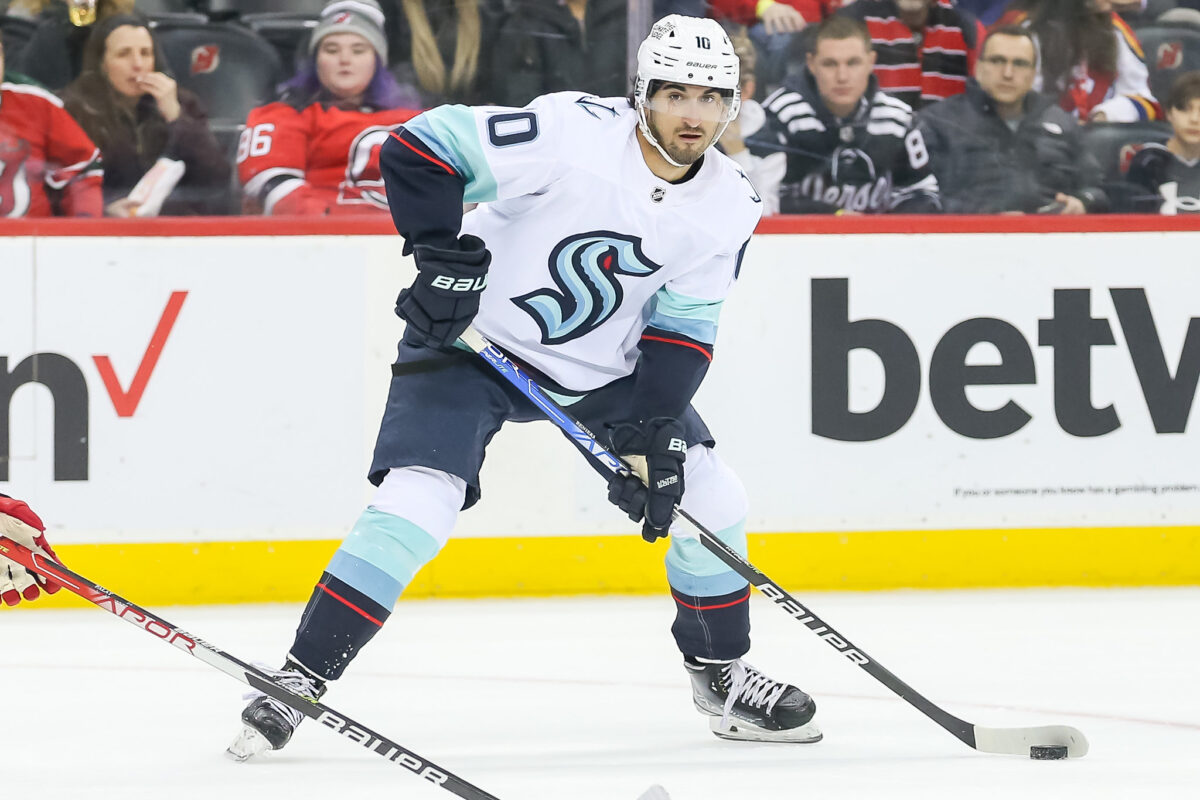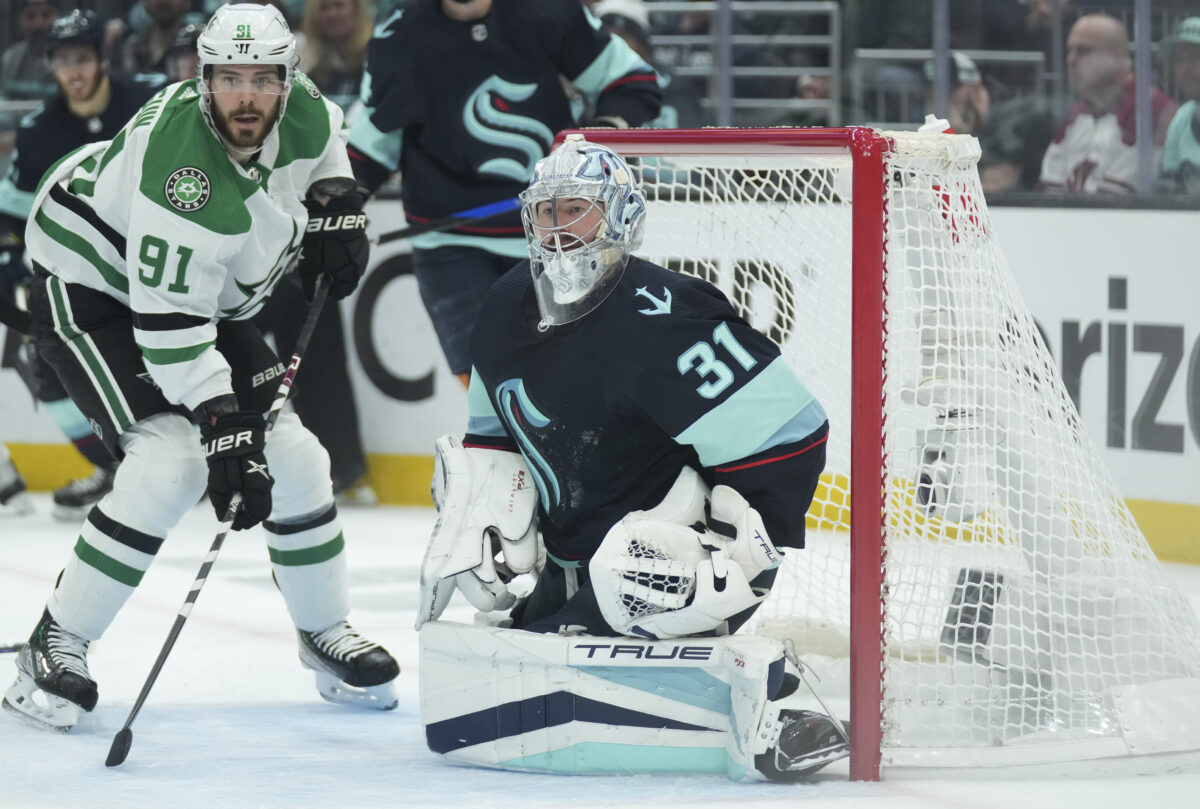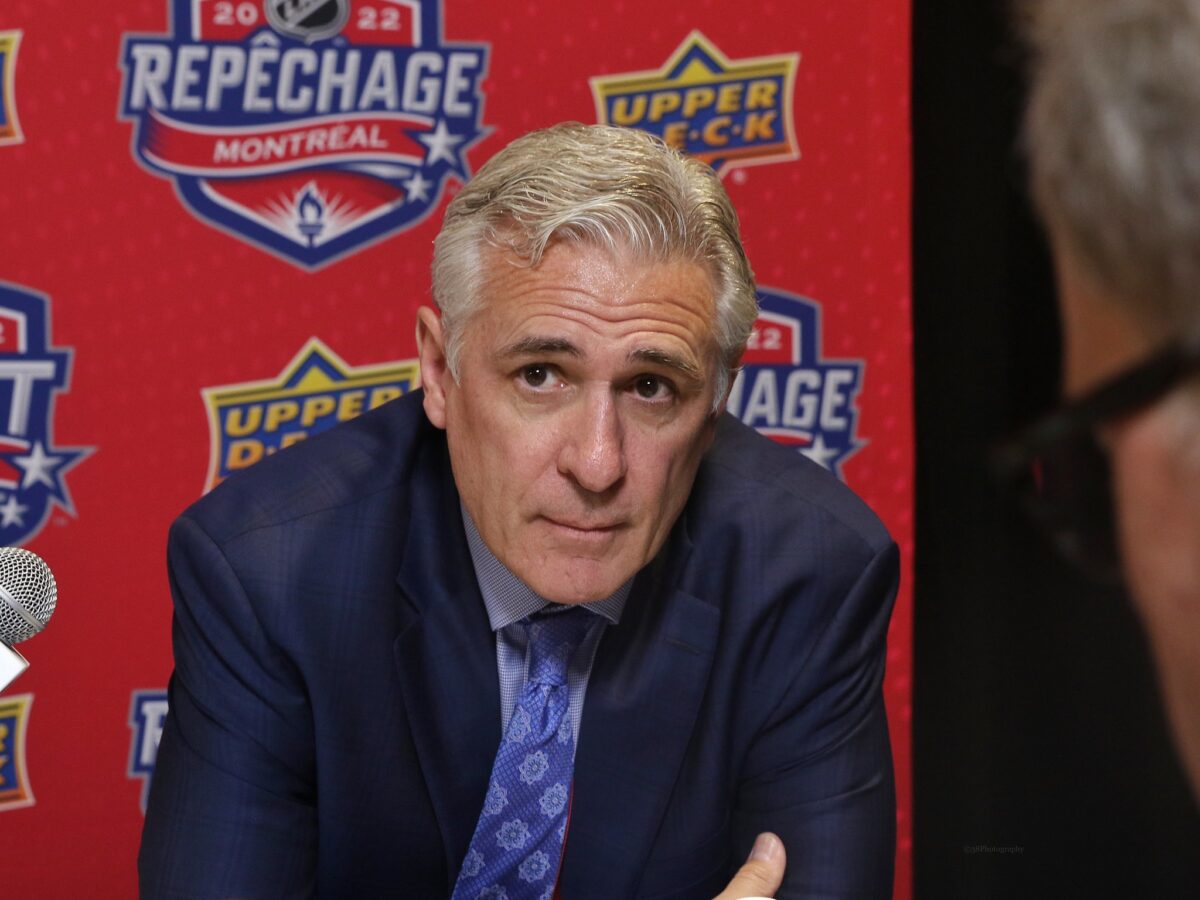News came out on Friday, March 8, that the Seattle Kraken have opted to keep right winger Jordan Eberle for two more years. He and the club agreed to an extension worth $4.75 million per season. This concludes speculation that Seattle may have been shopping Eberle around, but what does it say about the team’s plans to improve its struggling offense?
The extension signed between the organization and the 14-year veteran is indicative of where the franchise believes itself to be and what it needs to accomplish for a brighter future. This is only a third-year expansion team that has yet to attain significant, sustained success. A breakout hit à la Vegas Golden Knights, the Kraken are not.
Why isn’t the team better than it perhaps should be? After all, they played until Game 7 of the Stanley Cup Playoffs’ second round last season, losing to an excellent Dallas Stars squad. What does the Eberle extension award the franchise for the upcoming duo of campaigns?
The Kraken Can’t Score
There are no two ways about it. Seattle is offensively deficient. They turn on the red light 2.76 times per contest, which ranks them 28th amongst the NHL’s 32 clubs. Stemming from that is their relative shyness to shoot the puck, having amassed but 1,796 shots through 62 matches for an average of 28.9. For comparative purposes, the Florida Panthers, who score 3.28 times a night, have made 2,176 attempts on opposing nets in 64 games for an average of 34 per tilt.

Heading into Friday, March 8’s NHL schedule, the player with the lowest amount of points in the top 50 is the New York Islanders’ Brock Nelson with 54. The closest Kraken is Jared McCann, with 52 points (27 goals and 25 assists). Eberle, the player who inspired the article, currently sits with 37 points, courtesy of 14 goals and 23 helpers. Second on the club is right winger Oliver Bjorkstrand’s tally of 45, thanks to 16 goals and 29 assists.
Team shooting percentages are not thought of that often. It might not look as if there is a big difference between the Kraken’s nine percent efficiency and the first-ranked Canucks’ 12.4 percent until one notices that Vancouver scores 3.52 times a game, good for fourth league-wide. A 3.4 percent difference between the team with the 28th-best offense and the fourth-best. So that’s what that stat means!
Matty Beniers was awarded the Calder Memorial Trophy for his efforts last season. In layman’s terms, he was rookie of the year. Sophomore campaigns bring with them a special brand of pressure, but even so, at this stage, there’s no way Beniers reaches last season’s plateau. He currently has 26 points, only eight via scoring.
Somehow, the Kraken Aren’t Dead
Despite the dearth of attacking prowess, Seattle isn’t out of the race for a playoff spot. The club is only six points back of a wild card seed in the West. As of this writing, they’re getting ready to host the Winnipeg Jets at Climate Pledge Arena, the same Jets they surprised on Tuesday. They know they can beat a very strong Winnipeg side.

Why haven’t the Kraken been made extinct this season, at least not yet? We wrote recently about goalie Joey Daccord’s brilliance in the net, a breakout season, if you will. He and Philipp Grubauer are doing their part to keep the Kraken afloat, with their collective .913 save percentage and 2.77 goals against average (Chris Driedger has also partaken in two matches).
What’s more, from an overall defensive standpoint, head coach Dave Hakstol has his team playing solid hockey. While the squad doesn’t shoot the puck nearly as much as they should, they don’t allow their opponents to take many chances, either. The Kraken are a respectable 12th in shots allowed (1,859), thus making the lives of their two solid goalies a bit easier.
So Why Extend Eberle?
It looks as though general manager Ron Francis is playing a long-term game. This is a young organization. Cases like the Golden Knights don’t happen often. The rule resembles much more what Seattle is experiencing: some wins, some losses, a playoff participation here, a miss there, etc.
Eberle is not only a senior statesman in the dressing room, but he’s been with it since the beginning, even if that means only three years. He’s already seen some lows (a rather poor maiden campaign) and some highs (playoffs in the sophomore year). Regarding average team ages, the Kraken are among the oldest in the NHL, with an average of 29.4.

It’s important to keep in mind a few things. First, they have potentially bright youngsters like Beniers (21 years) and left wing Tye Kartye (22 years). Second, extending Eberle isn’t the only bit of business they performed this week. Seattle sent Alex Wennberg to the New York Rangers in exchange for a 2024 second-round pick and a 2025 fourth-round pick. Francis appears to want to bridge the original generation of Kraken players and its future.
The glass-half-full interpretation of the strategy is “slow but steady.”
